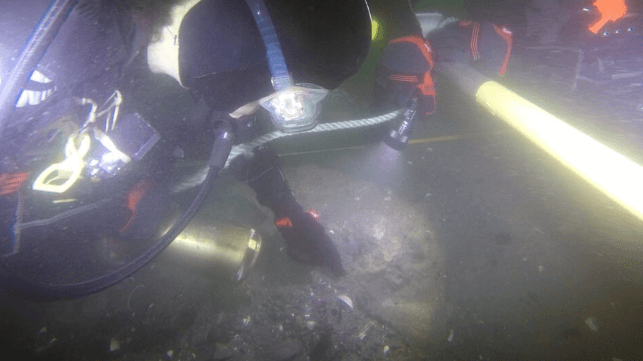Researchers Identify Wreck of Capt. Cook's HMB Endeavour

The Australian National Maritime Museum believes that its researchers have conclusively identified the wreck of Capt. James Cook's famous barque, HMB Endeavour. The wreck site is devoid of artifacts, so researchers have had to rely on historical records and the characteristics of the much-degraded wooden hull to draw together enough clues.
HMB (His Majesty's Bark) Endeavour circled the globe from 1768-1771, taking Capt. Cook and his crew on a voyage of discovery to Australia and New Zealand. The ship ended up in civilian service after its voyage of exploration, and during the Revolutionary War, it was sunk by British forces as a blockship in Newport, Rhode Island.
The staff of the Australian National Maritime Museum have been examining a set of likely candidate wreck sites in Newport's harbor for years. In February 2022, the museum announced that its researchers had finally found it. This month, the institution announced that it has conclusive proof of the wreck's identity, thanks to a careful analysis of its construction.
The researchers have discovered the wreck's pump well, along with the keel-stem scarf joint at the bow. The location of these features lines up with the dimensions of HMB Endeavour. The pump well was drawn out in its as-built condition during a survey by the British Admiralty in 1768, before the ship began its circumnavigation, so its dimensions were known. When a map of the wreck site was overlaid over Endeavour's lower hold plan, the pump well lined up perfectly on the plans. Since ships of this era were built to the shipwright's own specifications by "rack of eye," not to a preconceived plan, each individual ship was quite different - so the dimensions of the pump well would be unique to HMB Endeavour.

that matters most
Get the latest maritime news delivered to your inbox daily.
The scarf-joint provided further evidence, both from its location and from its design. The wreck had a rare "half-lap" scarf joint, used to build vessels with a near-vertical rake. It precisely matched Endeavour's plans. Only a very few historical vessels are known to have been built with this joint type in this time period, and the ones that are known are British colliers, just like Endeavour.
"Enough correlations have been drawn between the archaeological and historical records to identify RI 2394 as James Cook’s Endeavour and there is now an urgent need to secure the highest possible level of legislative and physical protection for the site," the team recommended.
